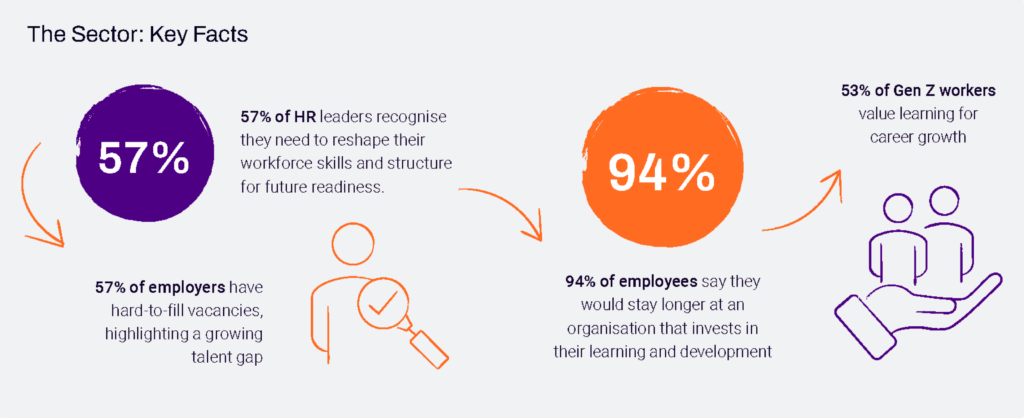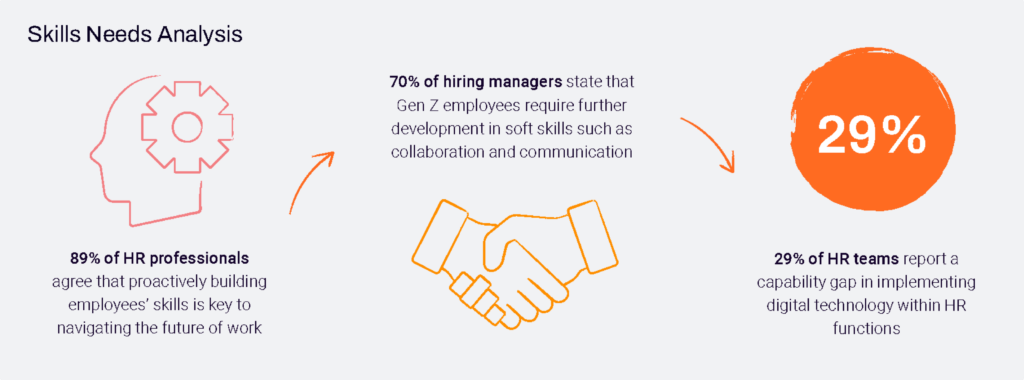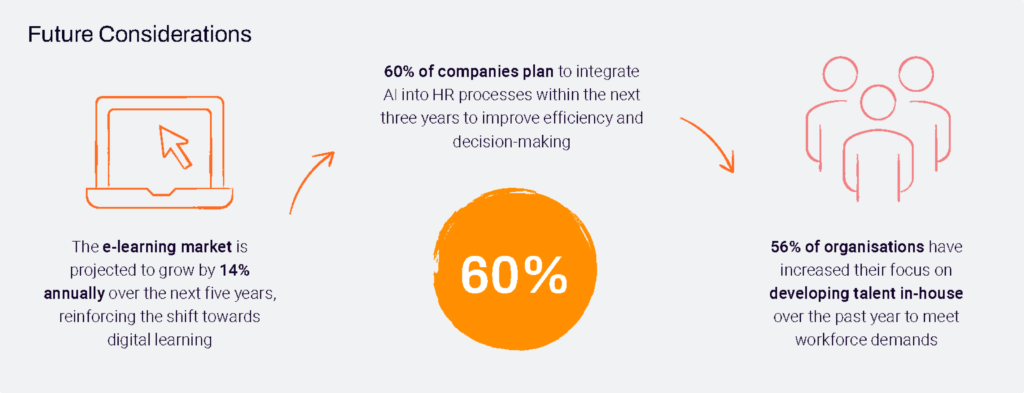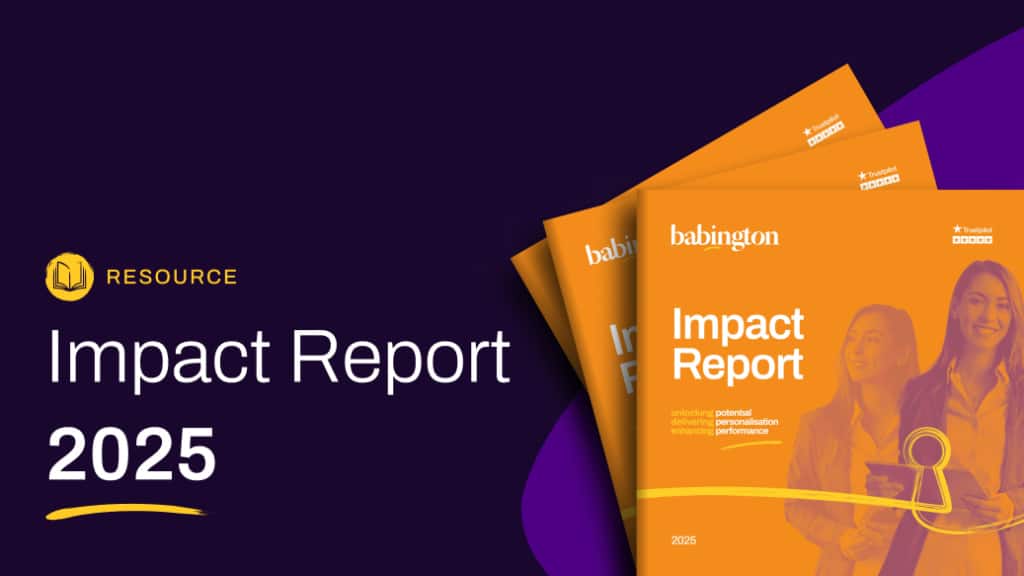How is the HR landscape evolving, and how can businesses adapt?
The HR and people management sector is undergoing a period of significant transformation. With skills shortages, shifting workforce expectations, and rapid digitalisation, HR professionals must be proactive in reshaping strategies to build resilient, future-ready teams.
By embracing internal training, digital learning, and structured development programmes, businesses can overcome challenges and create opportunities for long-term success.
The current HR landscape position
HR professionals are navigating an increasingly complex environment, where talent shortages and skills gaps are some of the biggest hurdles. While organisations recognise the need for workforce transformation, many struggle to fill roles and keep up with evolving skill requirements. Below are just some of the most recent statistics reported:

- 57% of HR leaders acknowledge that reshaping workforce skills and structures is essential for future readiness.
- 94% of employees say they would stay longer at a company that invests in their learning and development.
- 57% of employers report difficulties filling roles, highlighting growing skills shortages.
- 53% of Gen Z workers prioritise learning opportunities to support career growth.
Employees actively seek learning and development opportunities, while employers face increasing challenges in sourcing skilled talent. This disconnect highlights the need for businesses to rethink how they attract, retain, and develop their workforce.
What are the skills shortages within the HR and People sector?
A lack of technical proficiency, digital literacy, and soft skills is widening the capability gap in many organisations. HR teams must address these challenges to remain competitive in an evolving workforce.

- 89% of HR professionals agree that proactively building employees’ skills is key to navigating the future of work.
- 70% of hiring managers state that Gen Z employees require further development in soft skills such as collaboration and communication.
- 29% of HR teams report a capability gap in implementing digital technology within HR functions.
As businesses accelerate digital adoption, consider the rapidly developing role AI can play within the workplace, and ensuring employees have the right skills to thrive is critical to long-term success.
Babington supports organisations across many sectors, bridging the skills gap, and preparing for the future through apprenticeships, training programmes, and digital learning solutions. Our tailored programmes help businesses build a people function that is fit for the future
Through HR, People, and Learning & Development apprenticeships, these programmes can support in shortening the capability gaps and develop the current skills shortages that are being reported.

"My programme has helped me shift my understanding of how and what I apply in my industry, to how things potentially work in other industries. There are even elements that I have introduced in the programmes I run."
Learner
Learning & Development Level 5

The combination of technical, competence development, and softer skills that are embodied within apprenticeships are the perfect way to develop an effective and engaged workforce.
For those that are considering professional qualifications alongside an apprenticeship, the Level 3 HR Support programme is available with, or without CIPD included. For those looking to progress their career further, the People Professional programme is accredited by CIPD.
Future trends in HR & people management
Looking ahead, digital learning, AI-driven HR processes, and internal talent development will shape the future of HR. Organisations must be ready to embrace these changes to stay competitive.

- The e-learning market is projected to grow by 14% annually over the next five years, reinforcing the shift towards digital learning solutions.
- 60% of companies plan to integrate AI into HR processes within the next three years to improve efficiency and decision-making.
- 56% of organisations have increased their focus on developing talent in-house over the past year to meet workforce demands.
With technology driving transformation, businesses must focus on internal training and development strategies to remain agile and future-proof their workforce. This will ensure that they remain ahead of other businesses when potential employees are considering their options and will demonstrate an ongoing investment in the development of its own people.
The future of HR is shaped by digital transformation, skills development, and workforce evolution. By investing in continuous learning and structured training programmes, organisations can bridge skills gaps, improve workforce efficiency, and secure long-term success.
If you are an organisation or a business that is looking to enhance your people strategy, apprenticeships can enhance this in the following ways:
- Develop in-house talent to meet workforce demands and retain top employees.
- Enhance digital and technical skills to address the capability gaps that are reported within HR functions.
- Equip employees with the essential soft skills, such as communication and collaboration.
- Leverage apprenticeships to provide structured learning and career development opportunities.
Want to learn more about how Babington can help your organisation build a future-ready workforce? Get in touch today!
Take a look at our latest infographic
Download








